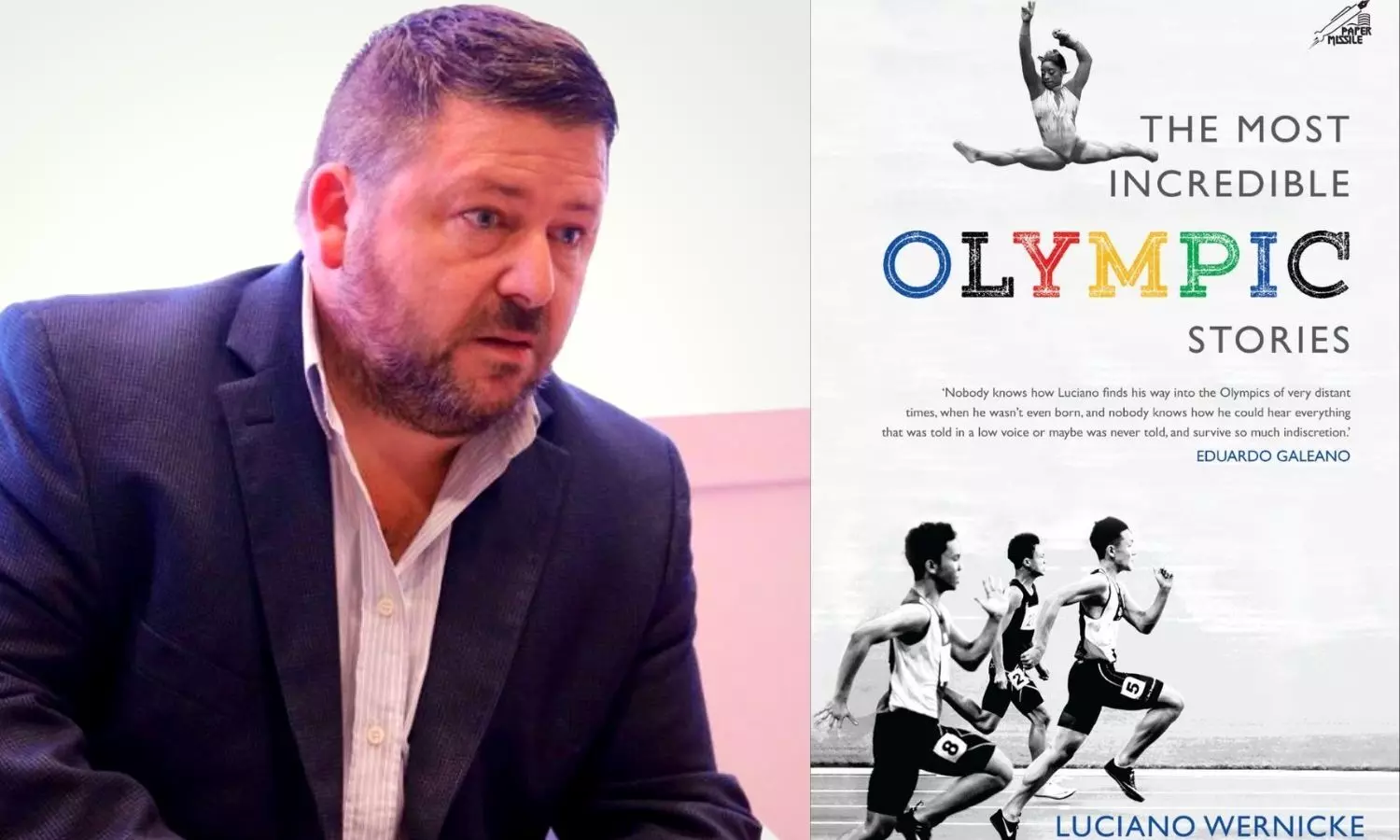Straight Out Of Pages
From accidental champions to rookie athletes - a book on incredible Olympic stories
The Olympics happen to be a storehouse of incredible stories and Argentine author Luciano Wernicke has collected them all in his latest book.

Argentine sports journalist turned author Luciano Wernicke and his latest book - The Most Incredible Olympic Stories
Coming once in every four years, the Olympic Games, outside of being a space for the ultimate crossover in the sports multiverse, packed with glitz and athletic excellence, is also the treasure trove of stories lying in wait to be unearthed. Argentine sports journalist turned author Luciano Wernicke goes down history lane and fishes out stunning stories from the very first Games in 1896 Athens to 2016 Rio Olympics in his latest book The Most Incredible Olympic Stories.
Here are a few snippets from the book which has over 500 such incredible Olympic stories in it.
Paris 1900 - Champion by accident
Paris 1900 - Golden and Ignored
The town of Asnières-sur-Seine also hosted the rowing events, which had its debut at the Games since previously it had to be suspended due to bad weather in Athens. On 25 August, when the preliminaries of couples with helmsman were made, the Dutch François Antoine Brandt and Roelof Klein were not satisfied with their performance. Although they had qualified for the final, they had been widely surpassed by the boat of the Société Nautique de la Marne, who carried a child as helmsman. Similarly, the boats of two other French rowing institutions—Rowing Club Castillon and Cercle Nautique de Reims— carried one boy each as a guide. They, on the other hand, had been assisted by their compatriot Hermanus Gerardus Brockmann, who was a twenty-eight-year-old boy, much larger and heavier.
Antwerp 1920 - The Big Surprise
Possibly the most amazing athletic victory of these Games was provided by the American Allen Woodring, a student at the University of Syracuse, in the 200 meters. Woodring, who had not qualified to represent his country in the preliminaries back in the United States, arrived in Antwerp, thanks to the injury of the fourth selected, George Massengale. The boy managed to pass the first two qualifiers on 19 August, and the next morning, won the second semi-final, even though his worn shoes opened in the final sprint. Woodring did not have a spare pair, so he had to borrow one.
However, the footwear he got was not suitable because the nails were too long, almost double that of his. Anxious of falling on the track, the young man tried to file the grips, but did not have enough time or the necessary tools. Lost in every quarter, Woodring went in search of the miracle and the miracle arrived: a strong and passing downpour drenched the Olympic stadium and softened its ash track too much. For that unexpected surface, the longer nails offered the perfect grip. Woodring, the student who had not qualified for the Games, the great American surprise, had his best race in life and returned home proudly with a gold medal around his neck.
[Luciano Wernicke's book The Most Incredible Olympic Stories has been published by Niyogi Books in India and is available for purchase.]
